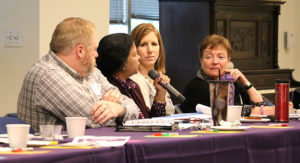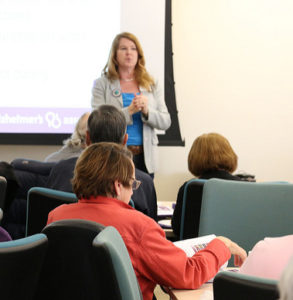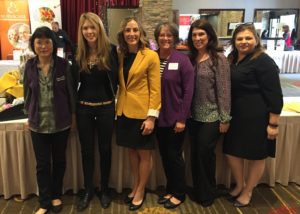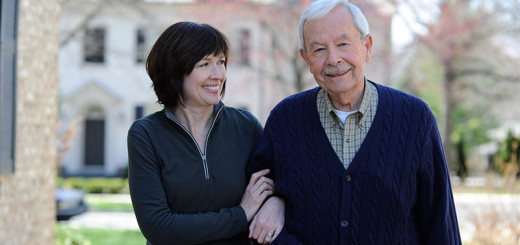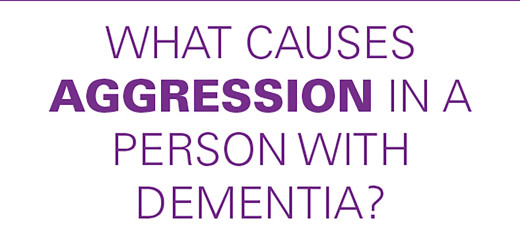Training professionals, improving care in our region
What do dental hygienists, first responders, conservators, hospital staff and prison employees have in common? They are all likely to interact with individuals living with Alzheimer’s and other dementias. At the Alzheimer’s Association, we train professionals in a variety of fields to provide excellent service to people living with Alzheimer’s in our community.
For over 20 years we have trained staff in assisted living facilities and home care agencies through our accredited curriculum, the Alzheimer’s Care Academy. Training topics include critical care issues such as communication, understanding and responding to dementia-related behaviors, hygiene and personal care, issues related to intimacy, enhancing mealtime, reducing pain and connecting in the late stages.
Training for real life situations
Mae Dizon, Nurse Practitioner at El Camino Hospital, expressed her team’s appreciation for the session provided by Alex Morris, our Professional Training Specialist. Staff told Mae that they benefited from “tips on communication and strategies on how to approach an individual with dementia.” They valued the practical nature of the training and the opportunity to consider real life situations. A nurse also told Mae that she had used the strategies “while interacting with a patient with frontotemporal lobe dementia. She said that her interventions worked, especially when the patient told her that he wanted to go home.” This nurse was able to share the techniques with co-workers who hadn’t attended the training.
Requests grow from other professions
Over the years, we’ve seen an increase in training requests from many other industries that are starting to have clients affected by Alzheimer’s. We have trained staff from dental offices, government agencies, health plans, hospitals, the Veterans Administration and the state prison system.
As society is starting to recognize the need for more training around dementia, the Alzheimer’s Association has become a go-to resource. We’ve received grants to develop special training on topics such as:
- dementia case management;
- caring for individuals with intellectual and developmental disabilities who also have dementia; and
- culturally appropriate dementia care for the LGBT community.
Training First Responders
Nationally, the Alzheimer’s Association developed a First Responder training, together with the International Association of Chiefs of Police. We offer classes in person or online for police and fire departments. In recent years, we’ve also had groups of police officers visit our San Jose office quarterly for an interactive, hour-long tour, where they can see the services we offer first-hand. This strategy has been proven to increase the likelihood of referrals and support from tour participants.
Reaching the hard to reach
In San Mateo County we received a generous grant to train staff who work in six-bed board and care homes. Small facilities often have trouble paying for staff members to attend a full day of training, while still needing to have other staff working with the residents. We have offered small stipends to help cover some of these additional costs. The Ombudsmen have been terrific partners on this project, hand-delivering invitations and encouraging care home staff to attend. The room comes alive as 30-40 training attendees engage in activities to practice their new skills.
Supporting continuing education in several fields
In California, the Alzheimer’s Association is a licensed provider of continuing education through several agencies. This allows us to provide continuing education units (CEUs) for a variety of license types, such as nurses, social workers and care facility administrators. We also offer conferences and trainings throughout the year where professionals can learn more about dementia care and earn their CEUs.
If you would like to learn more about our professional training offerings, please contact Pauline Martinez, Education Services Manager, at 800.272.3900 or pmartinez@alz.org.
Related Resources
Conferences and professional trainings
First responder training
Web-based professional training
Dementia care practice recommendations





